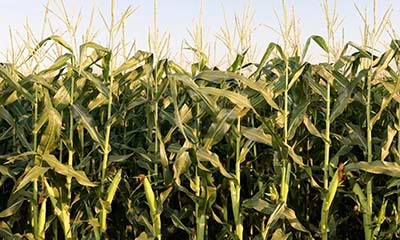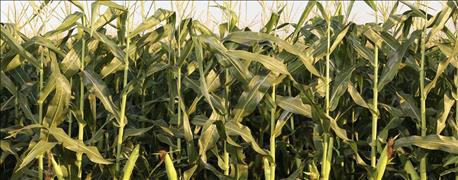
While digging through maize (corn) genes, geneticists at Cornell University and Florida State University uncovered what they call “dark matter” – 1% to 2% of the genome that turns genes on and off. These “switches” account for roughly half of observable corn traits and can substantially accelerate corn trait breeding.
The landmark finding “allows us to start pinpointing the single base pair changes small mutations that regulate or allow plants to adapt to their environment,” says Edward Buckler, USDA research geneticist at Cornell University. “It helps us narrow down the hunt dramatically.”

TINY SWITCHES INSIDE: Corn researchers discovered “master switches” inside corn cell chromatin that turn traits on and off. (Photo: Fuse/Thinkstock)
Most DNA is tightly coiled up to fit inside cell nuclei. But if you stretched DNA strands found in one corn cell all the way out, it would measure 2 meters [more than 6.5 feet]. But there are also cell DNA regions not tightly wrapped, known as open chromatin. That’s where the dark matter – 1% of the genome most important for turning genes on and off – was discovered.
Human gene-mapping assays pioneered the technology for many uses, including crops. This new assay is so efficient in pinpointing important DNA regions that the team expects it could be a transformative technique applicable to hundreds of crops. “It’s like finding a light switch on the wall,” adds Hank Bass, biologist at Florida State University and co-author if the study. “The chromatin profiling shows which parts of the genome are genetic switches.”
The research paper’s lead author was Eli Rodgers-Melnick, former postdoctoral researcher in Buckler’s lab, now with Dupont/Pioneer. The team used 15 years of corn data from Buckler’s lab to link phenotype traits such as yield, drought and stress tolerance or starch content with the mapped NA found in open chromatin.
With the new information, plant breeders will be able to use genetic markers linked to these key genomic areas and new genomic editing techniques to accelerate corn breeding to meet demands of growing populations and climate changes, say the researchers. The findings may open doors for discovering regulatory regions in other crops. The study was funded by the National Science Foundation and USDA.
About the Author(s)
You May Also Like




